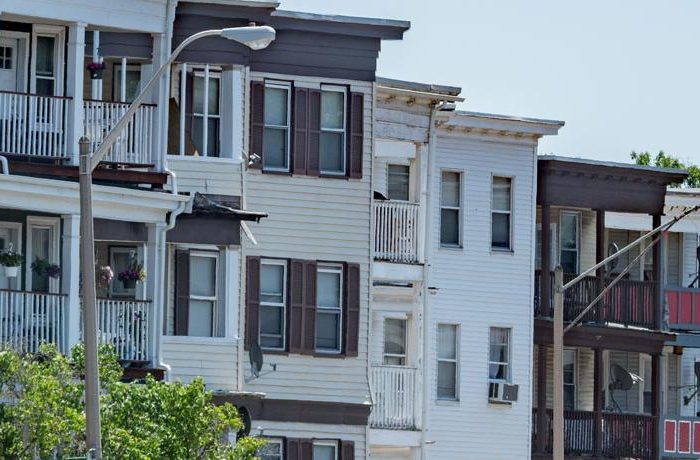Study: Boston-Area Communities Should Loosen Restrictions for Accessory Dwelling Units
Additional units could help ease housing shortage
BOSTON—A review of 100 cities and towns around (but not including) Boston finds that loosening local zoning laws to allow for the development of more accessory dwelling units (ADUs) would help ease the region’s housing shortage without creating any significant problems, according to a new study published by Pioneer Institute in partnership with the Massachusetts Smart Growth Alliance.
Accessory dwelling units are apartments within or behind owner-occupied single-family houses that appear to be single-family as opposed to two-family homes.
Thirty-seven of the 100 Boston-area communities allow ADUs and permit them to be rented out, though typically with significant restrictions. Another 31 allow them temporarily for occupancy by relatives of the homeowner or a caretaker, and 32 have no zoning for ADUs.
New ADUs are currently created at a rate of just 2.5 per year in the 37 communities where they are permitted. “If an average of five were added annually in each of the 100 area cities and towns, 5,000 new apartments would be created in a decade,” said Amy Dain, author of “The State of Zoning for Accessory Dwelling Units.”
Sixteen of the 37 municipalities that allow ADUs limit them to lots above a certain size. In Manchester-by-the-Sea, lots must be at least twice the minimum size for the district.
Other communities limit ADUs by a house’s floor area. Medfield allows them only in homes built before 1938 that cover a minimum of 2,000 square feet, while Burlington restricts them to houses that were at least 1,800 square feet as of 1989.
The median size of a new single-family home in the Northeast didn’t surpass 1,800 square feet until 1987 and didn’t top 2,000 square feet until 1992.
In the 31 cities and towns that only allow temporary ADUs for relatives or caretakers, the unit must be removed when they move out, which wastes much-needed housing. Other apartments continue to be rented illegally, without safety inspections.
Municipal planners and housing advocates have been working for decades to increase the allowable number of ADUs. At least 20 of the 100 communities have revised their zoning for ADUs in the last decade, yet the environment remains highly restrictive.
Since they are owner occupied, ADUs are unlikely to cause property neglect or lead to disruptive behavior such as loud parties. New apartments would be highly dispersed and barely visible. The 5,000 new units that could be created by loosening ADU restrictions would be spread over 538,000 single-family houses in the region.
With average household size shrinking, ADUs might maintain existing neighborhood population densities, but are unlikely to increase them.
Among Dain’s recommendations are state legislation to allow ADUs in single-family houses. Short of a new state law, she recommends that communities allow ADUs by right rather than requiring a special permit, and that they eliminate lot size and residency restrictions (such as those limiting ADUs to members of the homeowner’s family or caretakers).
“Accessory units are environmentally smart, limited in their traffic impacts and do precious little to change the character of single-family neighborhoods,” said Pioneer Executive Director Jim Stergios. “If we are even slightly serious about increasing the supply of housing, this is a no-brainer.”
“Accessory apartments are a great way to allow homeowners to adapt to their family’s evolving needs over time while maintaining privacy and independent living,” said André Leroux, Massachusetts Smart Growth Alliance Executive Director. “They’re a great option for a young person staying at home, a caretaker for aging parents, multigenerational living, or just to help a senior homeowner cope with rising property taxes through rental income.”
About the Author
Amy Dain is currently conducting a study of residential zoning regulation in Greater Boston, commissioned by the Massachusetts Smart Growth Alliance. Previously she coordinated the StatNet initiative for the Collins Center for Public Management at UMass Boston, and managed Pioneer Institute’s Housing and Middle Cities Initiatives. She earned her Master of Public Policy from the Harvard Kennedy School of Government and Bachelor of Arts in Russian Studies from Wesleyan University.
About Pioneer
Pioneer Institute is an independent, non-partisan, privately funded research organization that seeks to improve the quality of life in Massachusetts through civic discourse and intellectually rigorous, data-driven public policy solutions based on free market principles, individual liberty and responsibility, and the ideal of effective, limited and accountable government.
About the Massachusetts Smart Growth Alliance
The Massachusetts Smart Growth Alliance (MSGA) promotes healthy and diverse communities, protects critical environmental resources and working landscapes, advocates for housing and transportation choices, and supports equitable community development and reinvestment. Its Great Neighborhoods campaign works with local residents and leaders to help cities and towns become more walkable, welcoming, and vibrant.
About the Research Study
In 2017, the Massachusetts Smart Growth Alliance commissioned a study on local regulation of residential development in eastern Massachusetts. The study is funded by a coalition of organizations including the Massachusetts Smart Growth Alliance, Citizens’ Housing and Planning Association, Home Builders & Remodelers Association of Massachusetts, Massachusetts Association of Realtors, Massachusetts Housing Partnership, MassHousing, and the Metropolitan Area Planning Council (MAPC). A committee including representatives of the organizations that provided funding, as well as municipal planners and representatives of environmental organizations, provided input into the research design. The study is a partial update of the research on local zoning regulations commissioned by the Pioneer Institute and the Rappaport Institute in 2004-2005.
Related Research & Posts:
- Residential Land-Use Regulation in Eastern Massachusetts
- Land-Use Regulation and The Rise in Housing Prices
- Housing and Land Use Policy in Massachusetts
- Housing Programs in Weak Market Neighborhoods
- The Power to Take: The Use of Eminent Domain in Massachusetts
- Build More or Manage Better? Public Housing in Boston and Massachusetts
- Getting Home: Overcoming Barriers to Housing in Greater Boston
- Regulation and the Rise of Housing Prices in Greater Boston: A study based on new data from 187 communities in eastern Massachusetts



